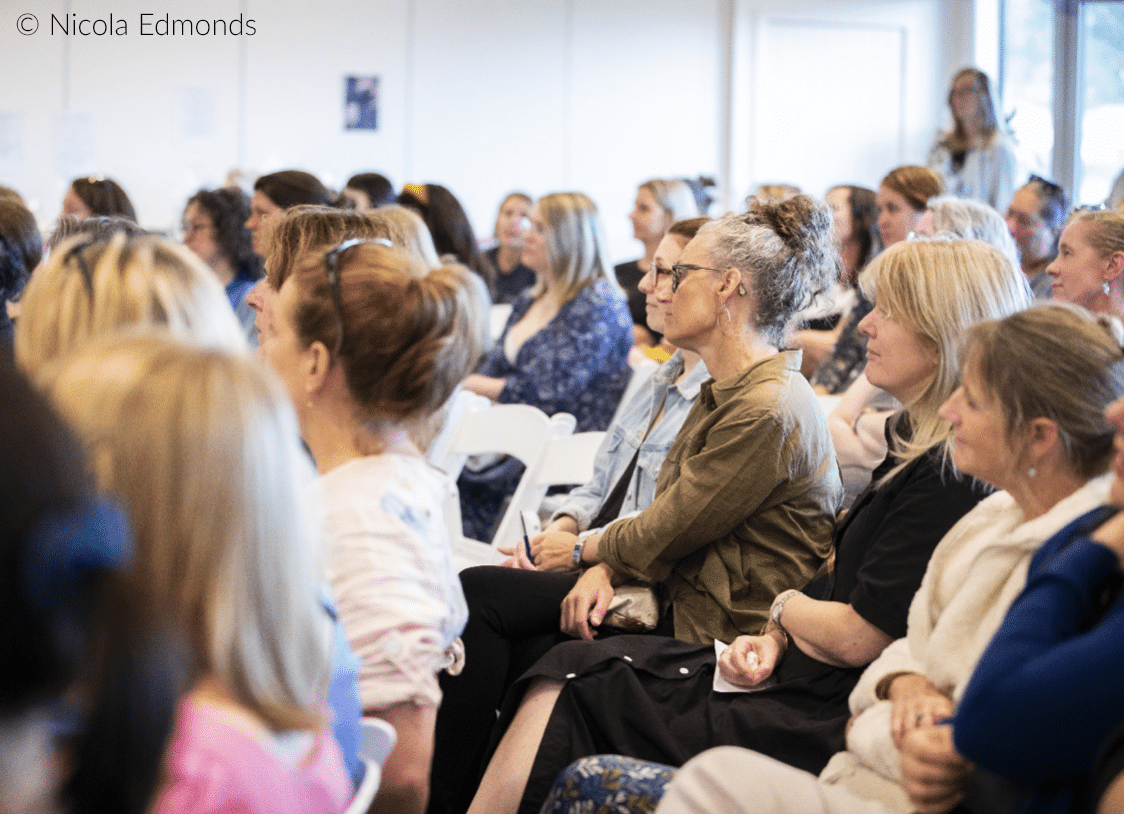
In 2019 at age 46, Sarah Connor, like many Gen X women, landed in perimenopause without knowing what that meant. The series of hormonal changes typical of midlife impacted every aspect of her health in significant ways for too many months. After seeing her GP and a long list of other health professionals, a menopause specialist finally helped her join the dots.
She’s since become an advocate and guest speaker raising awareness of menopause for government organisations, businesses, associations, networks and communities across Aotearoa.
To help us mark International Women’s Day, Sarah shares her knowledge and experience of menopause/ruahinetanga and explains why more organisations are learning about menopause and supporting people going through this normal, inevitable, and powerful stage of life.
Menopause – a stage of life that shouldn’t be taboo
More workplaces than ever understand the importance of supporting people at work when they start their first job, during pregnancy, when they return to work after parental leave, after a bereavement, an injury or health issue. Menopause is another stage of life (transition) that can require support too but until recently talking about it has been taboo.
Menopause/ruahinetanga is a normal stage of life that every woman, and some non-binary people and trans men, will go through. Perimenopause is the 2 to 10 years leading up to menopause when hormones start to fluctuate. At menopause, the ovaries stop releasing eggs and menstrual periods stop. In most cases, if someone hasn’t had a period for 12 months in a row, they are considered post-menopausal. The average age of menopause in Aotearoa is 52 years. Most people reach menopause between the ages of 45 and 55.

How can perimenopause/menopause affect someone and for how long?
The hormonal changes through the various stages of menopause can cause 30 to 40+ symptoms and affect both physical and mental health and wellbeing. Significant symptoms are experienced by about 70% of those going through menopause.
Common symptoms include: anxiety; low mood/depression; hot flushes; night sweats; heart palpitations; irregular, longer/shorter, heavier/lighter periods (flooding); decreased libido; brain fog; dry eyes; nausea; disturbed sleep/insomnia; aching joints and fatigue. Most people start to notice changes in their late 30s to early 40s.
Menopause before the age of 40 is referred to as premature ovarian insufficiency (POI). Menopause between the ages of 40 and 44 is known as early menopause. Surgical menopause is when both ovaries are surgically removed before someone goes through menopause naturally. Induced menopause is when the ovaries are damaged either by disease or medical treatments before natural menopause has occurred.
Why raise awareness and support someone through menopause at work?
Raising awareness helps people understand the changes they’re experiencing and allows them to get the support they need – from a health professional, their manager, workmates, friends and family. Talking about menopause reduces the stigma, proactively supports health, safety and wellbeing at work and fosters a culture of diversity and inclusion. Being open about menopause can also ease symptoms, e.g., saying you’re opening an office window to ease a hot flush or suggesting a walking meeting to ease aching joints.
“After running the numbers and realising that 34% of our people are women aged over 40 there was no way we could not do something! I’ve never seen so much vigorous nodding to a speaker before as we heard Sarah talk about experiences that so many of us have had.”
— Sarah Able, Chief People & Culture Officer, The Co-operative Bank
Identifying and making appropriate changes in a workplace can allow team members to perform at their best and develop their full potential. Accommodating temporary menopause-related needs will make it easier to attract hugely valuable and experienced talent. It can also reduce the cost of recruitment and onboarding if more people affected by menopause stay in their jobs rather than leave because of a lack of flexibility, understanding and support.
The research reflects reality
On World Menopause Day 2023, a research report The Silent Transition (2023) conducted by the NZ Institute of Economic Research (NZIER) was released in partnership with Global Women and ANZ bank. It showed that “workplace conditions are key to supporting women to maintain economic participation and productivity”. Some key points from the report:
- More than half of New Zealand women have never discussed menopause, perimenopause, or their experiences of these with anyone at work, least of all their manager.
- Only one in three managers felt “very knowledgeable” about menopause (dropping to only one in five male managers). Managers are generally open to discussions about menopause; however, many feel they need to know more about it as well as about what adjustments they can offer women.
- Women in female dominated industries experience more menopause-related difficulties and often don’t ask for the adjustments they need because they know their employer will not be able to accommodate them.
- Where work involves face-to-face service delivery, workers on their feet all day, and long shifts, women are cutting back work hours and quitting, so employers need to consider what they can do increase support for women through menopause.
Everyone can do something to make a difference
Raising awareness with everyone in your workplace regardless of age and gender is an important first step. Enlightening leaders, upskilling managers, and inviting men to be part of the conversation is critical, too.
“As a guy, we don’t often get exposed to information related specifically to women’s health. If we are to effectively support our partner, workmates, family or friends going through menopause, we first need to understand it.” — Peter, Nelson City Council
One day, anyone going through menopause will be understood and supported at work as people going through any other stage of life are understood and supported at work. To help you make a start towards changing the mindset and culture around menopause in your workplace, I’ve created a list of Ten Things you can do. Your efforts will not only make a difference to people directly impacted by menopause, but everyone else on their team at work and home, too.
Sarah Connor is a writer, guest speaker and advocate raising awareness of menopause in workplaces and communities across Aotearoa. www.sarahconnor.co.nz


